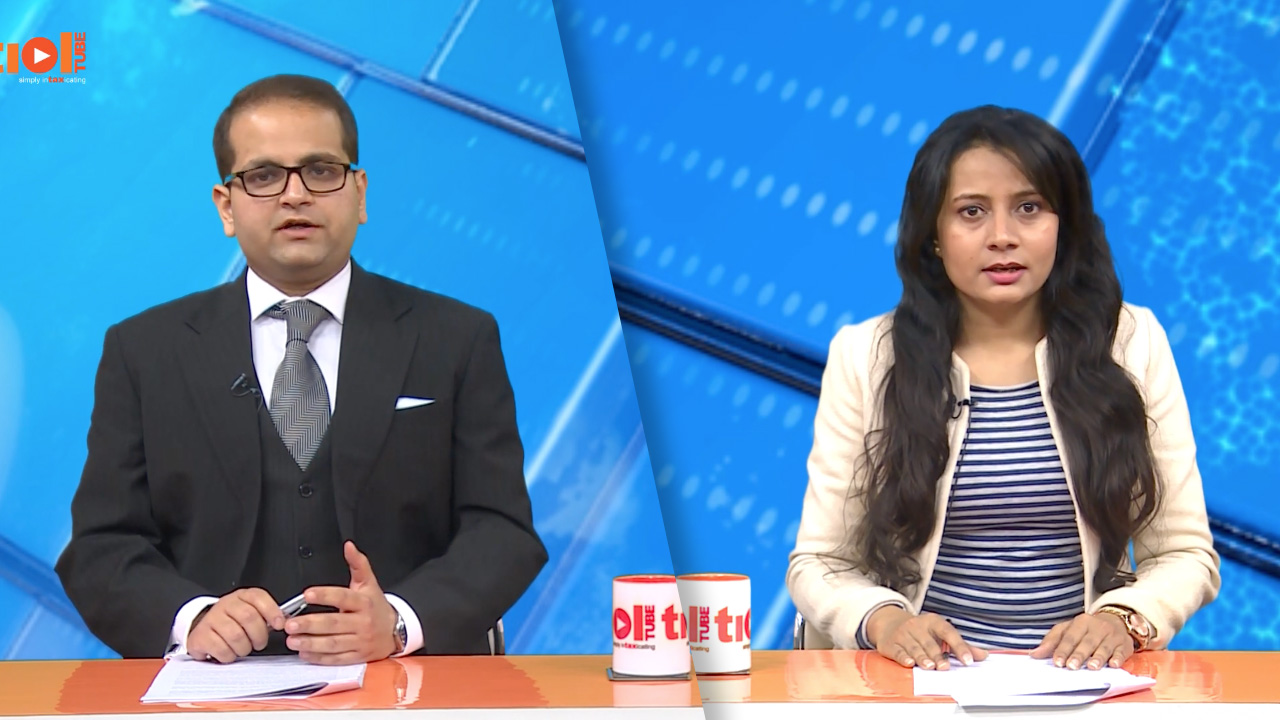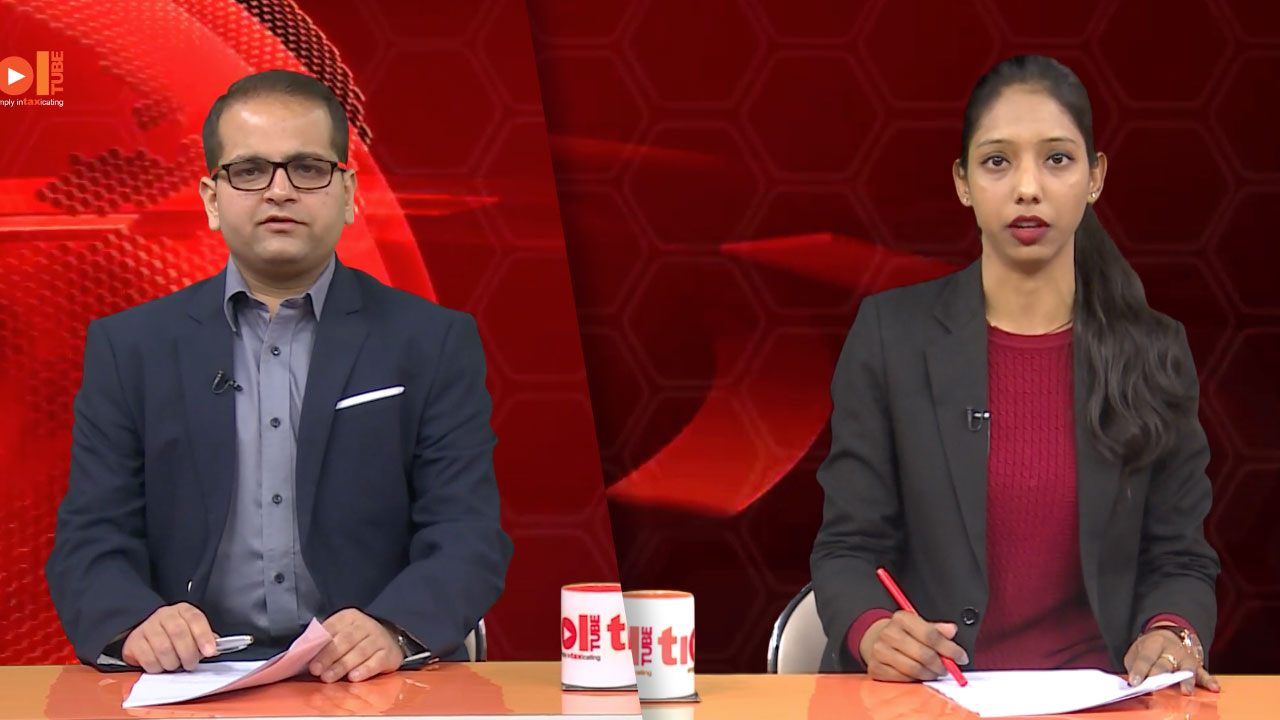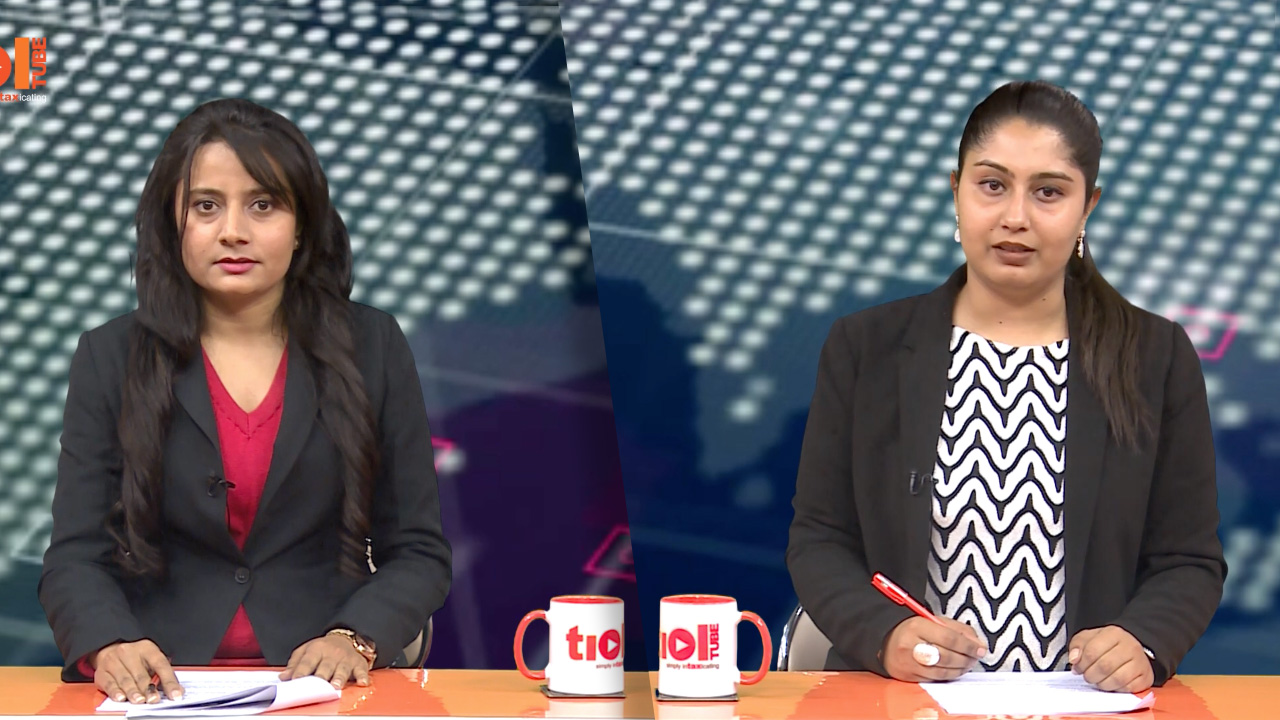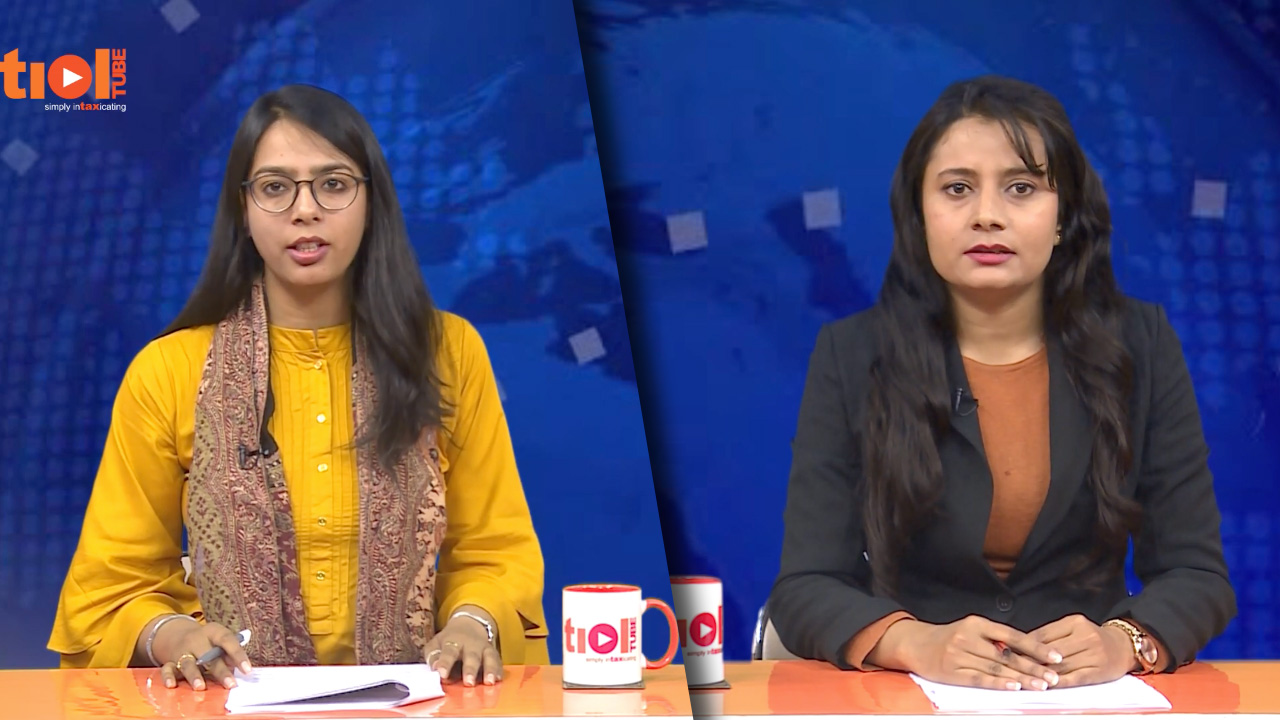|
SERVICE TAX
2019-TIOL-630-HC-MAD-ST
R Jayaraj Vs CESTAT
ST - According to the petitioner, the first respondent passed an ex-parte order dismissing the appeal field by the petitioner due to his non appearance - Aggrieved, the instant writ petition has been filed.
Held: Tribunal could not have dismissed the appeal filed by the petitioner for want of prosecution and it ought to have decided the appeal on merits even if the appellant or its Counsel was not present when the appeal was taken up for hearing - Further, non-compliance of the conditional order by the petitioner for the grant of stay will also not empower the first respondent Appellate Tribunal to dismiss the main appeal for non-prosecution - order passed by the Appellate Tribunal, dismissing the appeal filed by the petitioner for default is an erroneous order and not in accordance with law - order is quashed and the matter is remanded back to the CESTAT for fresh consideration - appeal should be disposed of within a period of three: HC [para 19, 20]
- Petition disposed of: MADRAS HIGH COURT
2019-TIOL-803-CESTAT-DEL
Delhi International Airport Ltd Vs CGST
ST - The appellant company entered into an agreement with the Airports Authority of India for Operation, Management & Development Agreement (OMDA) for operating, maintaining, developing, designing, constructing, upgrading, modernizing, financing and managing IGI Airport - Other activities included aeronautical & non-aeronautical services - As per the OMDA, the appellant was granted the right to determine, demand, collect, retain & appropriate charges from airport users - These include aeronautical charges, non-aeronautical charges, Passenger Service Fee (PSF) and Development Fee (DF) - The appellant was served SCNs proposing to raise duty demand on such amounts collected - The appellant informed the jurisdictional Commissioner that such DF is levied statutorily to fund a public purpose & so was not consideration for any service rendered - Hence it claimed that such DF would not attract service tax - However, the adjudicating authority confirmed the demands with interest u/s 75 of the Finance Act 1994 and penalties u/s 76 & 78 of the Act - An amount already deposited by the appellant was appropriated - Hence the present appeal.
Held - An identical issue was settled by the Tribunal in Mumbai International Airport P. Ltd. Vs Commr. Of ST-I, Mumbai - Here it was held that Section 22 of the Airports Authority of India Act, 1994 enabled an airport authority to charge users of facilities being offered - However, this provision had not been invoked for passengers & payments were restricted to & only upon exercising option to procure food & non food items from licencees in the airport premises - It was also held that the levy u/s 22A did not offer any option to the passenger & enforced such levy without the passenger's consent, through the airlines - It also held that amounts so collected were put in an escrow account - Thus the Tribunal in Mumbai International Airport P. Ltd . found there to be considerable difference between the levy u/s 22 and that u/s 22A - It also held that the relation of the levy of Development Fee with any facilities offered u/s 12 of the Airport Authority of India Act, 1994, could not be established - The Tribunal also refered to the Apex Court's decision in Consumer Online Foundation & Others v. Union of India wherein it was held that such Development Fee is a levy for future establishement & so concluded that such levy was not consideration for any service being provided - Following such findings of the Tribunal in Mumbai International Airport P. Ltd. Vs Commr. Of ST-I, Mumbai no service tax can be levied on such Development Fee: CESTAT (Para 3-7,11,12)
- Assessee's appeal allowed : DELHI CESTAT
2019-TIOL-802-CESTAT-MAD
Hindustan Oil Exploration Company Ltd Vs CGST & CE
ST - The assessee is a private company engaged in exploration of oil and gas onshore and offshore in India and elsewhere and to tap oil and gas reserves and other similar or allied substances - The first issue is with regard to non-inclusion of TDS part which is paid under reverse charge mechanism for services provided by foreign company - The assessee has furnished documents to show that though TDS amount is deposited the same is borne by assessee and has not been made part of the consideration - The demand of service tax alleging that TDS has not been included in the gross value is incorrect on facts and cannot sustain - The second issue is with regard to non-inclusion of expenses like airfare, accommodation expenses and incidental expenses borne in regard to the service provided by the foreign companies - The plea of assessee is that these are expenses for services of foreign personnel and therefore need not be included - Service tax is payable on the gross amount charged as consideration which will include the expenses for rendering service also - The assessee has not been able to establish that these expenses are reimbursable expenses - Therefore the demand is upheld - The third issue is with regard to demand on GTA service - On perusal of invoices, it is seen that the CFS agent has charged the assessee separately as freight charges for GTA service - When assessee has paid the freight charges for transportation of goods, they are liable to discharge service tax under this category as service recipient - The demand under this category also requires no interference - It is seen that they have been paying service tax as well as filing the returns regularly, the non-payment of service tax under these two categories was with regard to bonafide belief as to the interpretation that assessee entertained - The penalties on 2nd and 3rd issues therefore are set aside: CESTAT
- Appeal partly allowed : CHENNAI CESTAT
CENTRAL EXCISE
2019-TIOL-628-HC-MAD-CX
CST Vs Bharat Sanchar Nigam Ltd
CX - Revenue had alleged that respondent assessee had contravened the provisions of rule 3(5) of CCR, 2004 inasmuch as they had removed Telephone cables, on which CENVAT credit was taken, outside the premises and the same were not brought back within 180 days - Demand confirmed by Commissioner of Service Tax, Chennai - Tribunal - 2012-TIOL-1614-CESTAT-MAD while allowing the appeal had held that the respondent assessee is a provider of Telephone services and the cables that were removed from the premises were laid underground between telephone exchanges and between telephone exchange and the premises of the customers and were essential for providing the output service; that there cannot be any question of bringing these cables back as the same would have disrupted the telephone services; that there has been no contravention of rule 3(5), second proviso, which provided that if any inputs or capital goods are removed outside the premises of the provider of output service for providing such service, there is no requirement for any demand of duty or reversal of credit - Revenue in appeal before High Court against this CESTAT order.
Held: Following the judgment in the case of Commissioner of Central Excise and Service Tax vs. M/s. Ashok Leyland Ltd. [C.M.A.Nos.352 of 2016 and etc. dated 06.12.2018] , Revenue appeals are dismissed and the substantial questions of law are answered against the Revenue: High Court [para 4, 5]
- Appeals dismissed: MADRAS HIGH COURT
2019-TIOL-801-CESTAT-MAD
Lakshmi Machine Works Ltd Vs CCE
CX - The assessee has filed this appeal being aggrieved by denial of refund upheld in impugned O-I-A - The short question is whether excess of duty paid towards scrap generated is just an adjustment or a claim for refund for which an application is required - It is not a dispute that registered job worker had paid the duty and it is not the case that there was also a similar situation of availment of re-credit by job worker - On perusal of letters addressed by assessee to Superintendent, assessee had clearly mentioned about necessary reversal in cenvat register for excess debit, which is only a reversal of book entry - This being so, there cannot be any question of refund as no duty is actually paid - The lower authorities have thus mis-understood this by not considering this as account reversal even though the assessee had chosen to intimate the Revenue - The reversal entry made by assessee is proper and in order - The SCN and subsequent orders denying request for refund being not in accordance with law are set aside: CESTAT
- Appeal allowed : CHENNAI CESTAT
2019-TIOL-800-CESTAT-HYD
CC, CE & ST Vs Sri Indra Distillary Pvt Ltd
CX - The assessee was registered for manufacturing Rectified Spirit, Denatured Spirit & Fusel oil - It availed Cenvat credit on inputs & capital goods - During a period when the factory was not running, the assessee utilized Cenvat credit for payment of duty and an amount equivalent to 8% or 10% of the value of exempted goods - The assessee later closed down the factory, surrendered its registration and then claimed refund of amount of unutilized Cenvat credit taken on inputs - The adjudicating authority rejected such refund - On appeal, the Commr.(A) set aside the O-i-O, following relevant precedent judgments - Hence the Revenue's appeal.
Held - The issue at hand stands covered by the judgment in the case of Welcure Drugs & Pharmaceuticals Limited vs. CCE, Jaipur, wherein reliance was placed on the decision in Slovak India Trading Company Pvt. Limited vs. CCE - Here it was held that the law does not prescribe reversal of credit except where it is invalidly availed - It also held that the benefit of credit availed validly, could be availed without there being any time limitations, unless if the manufacturer chooses not to use such input in the manufacture of final product - Thus, the issue stands settled in favor of the assessee: CESTAT (Para 3,7,8)
- Revenue's appeal dismissed : HYDERABAD CESTAT
2019-TIOL-799-CESTAT-CHD
Ultimate Flexipack Ltd Vs CCE
CX - The assessee is having a manufacturing unit availing area based exemption under Notfn 56/2002-CE - As regards to issue with reference to eligibility of assessee for refund of education cess and higher education cess paid on final products cleared by them, both the sides agreed that the issue stands covered by decision of Supreme Court in M/s. SRD Nutrients Pvt. Limited 2017-TIOL-416-SC-CX - The Apex court held that the assessee will be eligible for education cess/ higher education cess paid on excise duty, when the excise duty itself is exempted from levy - By following the said ratio, the dispute is decided in favour of assessee - The impugned order records that the assessee has not produced anything on record which would show that they had cleared the goods from the factory gate to a warehouse, any other premises, a depot, consignment agents premises from where such excisable goods were sold - Admittedly, the goods sold by assessee delivered at the buyers premises will not make the place of removal as buyers premises - Following the ratio of Apex court in Ispat Industries Ltd. 2015-TIOL-238-SC-CX , there is no justification for assessee to consider the assessable value with inclusion of freight element after the goods were sold/removed from the factory - As such, the question of paying duty on such value addition to be covered by exemption under Notfn 56/2002-CE does not arise - Accordingly, the claim of assessee is not sustainable - Denial of concession under notfn 56/2002 for assessee, is not justified by any provisions of law - In fact, the impugned order admits that there is no specific provision to cover such situation - However, presuming a possible attempt in availing undue advantage, the lower authority held that assessee is not eligible for concession under Notfn 56/2002 when the goods were re-cleared, after processing - There is no allegation of violation of any provision of said Rule or notfn - In absence of any contrary legal provision, the concession available under Notfn 56/2002 on payment of duty on goods cleared by assessee cannot be denied - On this issue, impugned order is set aside to this extent - To sum up, the assessee shall be eligible for refund/recredit of education/higher education cess - The refund/re-credit with reference to value attributable to outward freight is not available to assessee - The refund/ self credit cannot be restricted in terms of Notfn 19/2008-CE and 34/2008-CE - Lastly, assessee is entitled for concession as envisaged under Notfn 56/2002: CESTAT
- Appeals partly allowed : CHANDIGARH CESTAT
CUSTOMS
NOTIFICATION
Trade Notice 50 Online filing and processing of applications for export of Restricted items (Non-SCOMET) at DGFT HQ
CASE LAWS
2019-TIOL-629-HC-KERALA-CUS
CC Vs Panna Gold Impex Ltd
Cus - Smuggling - Tribunal - 2019-TIOL-20-CESTAT-BANG while setting aside the order of the adjudicating authority held that the burden on the Department, to prove that the gold bars and jewellery seized from the two persons apprehended at Vyttila were smuggled gold, was not discharged; that u/s 123 of the Act, the burden was entirely on the Department to prove that the seized gold was smuggled; that the gold bars were not of standard size, shape or weight and that there were no markings on it; that the ornaments were of 91.6% purity and, therefore, cannot be assumed to have been imported; that the two persons apprehended were not coming out of any Airport or Seaport, nor were they crossing any international border so as to warrant action under Section 110 of the Customs Act; that the Adjudicating Authority and the first appellate authority came to a wrong conclusion relying on the statements of the two salesmen, which was subsequently retracted - Revenue appeal before Kerala High Court.
Held: From a reading of section 123 of the Customs Act, 1962 it is explicit that, when any goods to which the Section applies are seized under the Act under the reasonable belief that they were smuggled goods, the burden of proof as to they were not smuggled goods, shall be on the person from whose possession the goods were seized - As far as gold and watches are concerned, the Section applies directly, hence, the finding of the Tribunal that the burden is on the Department to prove that the gold was smuggled, cannot be accepted - A reading of Section 123 also require only a reasonable belief as far as gold is concerned, that it was smuggled - statement of the carriers of the gold under Section 108 of the Act, can be safely relied upon by the Department to proceed against them - in case of seizure of gold, even without markings, the burden is upon the person, who has custody of the gold, under Section 123 of the Act, to prove that the gold was legally acquired - mere fact that the interception and seizure was not affected at an international border or near an airport or seaport is irrelevant, since the statements of the intercepted persons clearly indicate that they were asked to avoid such means of transport and stick to the normal modes of public transport - There can also be no presumption drawn that the carriers of smuggled gold after the gold reaches the country would only resort to commutation by air or sea - The persons from whom the gold was seized disowned the same and said that they were mere carriers of Om Prakash Khatri, who accepted that the gold seized belonged to his Company, therefore, the onus to prove that the gold was not smuggled, so as to upset the reasonable belief entertained by the Department shifted and squarely rested on his shoulders - The gold bars and pieces were subjected to chemical examination which revealed that they were of 99.8% purity which aspect the Tribunal ignored and referred to the purity of the ornaments which was not an issue before it - records maintained were vague, incomplete and incorrect justifying the allegation of the Department that they were fabricated - The transactions were shrouded in mystery and were not transparent and exact, especially considering the business of precious metal - appellants had clearly failed to discharge the onus of proof cast on them by Section 123 - Tribunal was not justified in upsetting the findings of the first appellate authority, and therefore, the Revenue appeals are allowed, and the impugned order is set aside and the order of the first appellate authority is restored: High Court [para 12, 19, 21, 22]
- Appeals allowed: KERALA HIGH COURT
2019-TIOL-625-HC-ALL-CUS
Sanjeev Kashyap Vs CESTAT
Cus - The petitioner has moved an application to waive the requirement of compulsory deposit of 7.5 per cent of total amount but the said application has not been entertained by authorities concerned - A simple reading of Section 129-E of Customs Act, 1962 shows that the deposit of 7.5 per cent appears to a condition which has to be complied with for filing the appeal - The petitioner fails to satisfy that the appellate authority has a power to relax that condition - At this juncture, petitioner seeks leave of Court to move an appropriate application before the appellate authority to remove the defect - It is left open to the petitioner to move an appropriate application before the first respondent: HC
- Writ petition disposed of: ALLAHABAD HIGH COURT
2019-TIOL-624-HC-DEL-CUS
Chander Prakash Verma Vs CC
Cus - Appellant challenges order dated 16.5.2017 passed by CESTAT [Tribunal], whereby the Tribunal affirmed the penalty imposed upon him by the customs authorities in respect of smuggling of 18 kilograms of gold into India - w hether the appellant is right that the order passed by the Tribunal is contrary to law as it does not examine and discuss the contentions and issues of facts and law as raised and had arisen for consideration?
Held: With regard to the facts determined by the customs authorities and affirmed by the Tribunal, no perversity or mis-appreciation detected, which would warrant this Court's interference - the appellant did not place any material on record to support his contention that he had attended the hospital to secure a medical appointment, nor did he give any explanation as to why his personal presence, along with an employee, was required for this purpose - there is no material to show that it was impossible for him to participate [along with others] in the removal of a padding from a car door - in any event, it is not just his physical participation, but his presence to oversee the operation that has been found against him - in these circumstances, coupled with the fact that he operates a jewellery business, the findings of the authorities that his presence was not merely coincidental, but that he was the intended recipient of the smuggled gold, cannot be faulted - when a Court or Tribunal is faced with concurrent findings of two authorities, it is not necessary to include a detailed reappraisal of the evidence in the judgment of the second appellate forum; a brief statement of the facts which have appealed to the Court and the reasons which have led it to affirm the findings of the authorities is sufficient - the present case falls into this category and it is for this reason that the impugned order of the Tribunal is adequate - none of the orders/judgements cited on behalf of the appellant are applicable to the facts of the present case - the order of the Chief Metropolitan Magistrate dated 17.12.2013, granting bail to the appellant and other accused persons, is wholly irrelevant to the issue before this Court - the question of law is answered in the negative, i.e. against the appellant and in favour of the Revenue - the appeal is dismissed: HIGH COURT [para 10, 13, 14, 18]
- Appeal dismissed: DELHI HIGH COURT
2019-TIOL-623-HC-MUM-CUS
Purshottam Das Gupta Vs UoI
Cus - Petitioner was at one time a Director of a limited company - a demand notice dated 28.12.2018 was served on him under which the 3 rd respondent directed him to pay outstanding dues of the company, amounting to Rs.2.49 crore along with interest and costs - on failure to pay, it was stated that the respondents would resort to power conferred by section 142(1)(c)(ii) of the Customs Act, 1962 r/w rule 4 of The Customs (Attachment of Property of Defaulters for Recovery of Government Dues) Rules, 1995 - the demand notice was received on 3.1.2019 and challenging this demand notice and claiming a declaration to the effect that, the dues of the company cannot be recovered from the petitioner even if it is outstanding, this writ petition is filed.
Held: A Division Bench of this Court in Writ Petition No.4117 of 2009 [Chandrakant Bhalchandra Garware v. The Union of India & Ors.], on 5.5.2009, after relying on its previous judgments, held that a director is not personally liable for the dues of a company - the view taken by this Court in the earlier decisions has been consistently followed - that has not been departed from and nothing contrary has been shown to this Court - this Court does not think that any assistance can be derived by the respondents from the judgment of the Apex Court in the case of Employees' State Insurance Corporation, Chandigarh vs. Gurdial Singh and others [1991 Supp (1) SCC 204] or from the general principle that it is possible to pierce the veil of a corporate entity and find out whether it is a glorified partnership - in a corporate entity, there is a team of officials which takes a decision in relation to the day-to-day activities and management so also administration of the policy decisions - something more than this and proof of involvement not only in the day-to-day activities but all affairs will also have to be placed on record to establish the piercing of veil - the argument now built, only on the basis of this principle, is thus of no avail to the respondents - on that basis, this Court cannot hold that the petitioner is also liable for the dues of the company - the writ petition succeeds - the dues of the company cannot be recovered from the petitioner personally - the demand notice to that extent is quashed and set aside - however, the notice can be pursued by the Authorities and the respondents insofar as the company and its properties and assets - all means of recovery as against the company are, therefore, open to be resorted to by the respondents : HIGH COURT [para 18, 19, 23, 24]
- Writ Petition allowed: BOMBAY HIGH COURT
|
|








